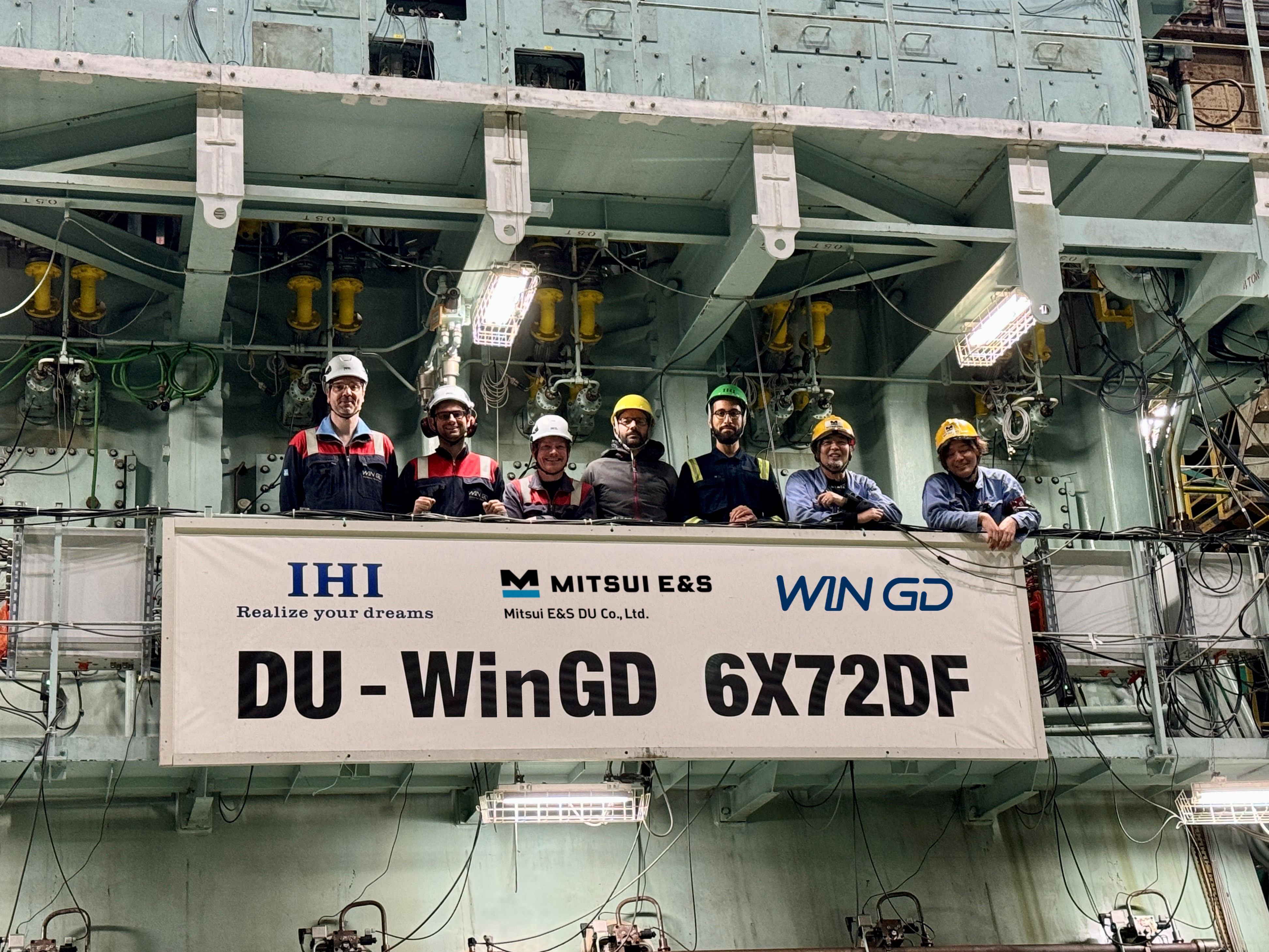WinGD and CMA CGM collaborate on trial of first VCR technology deployment at sea
Swiss marine power company WinGD’s Variable Compression Ratio (VCR) technology is to be trialled by global shipping line CMA CGM onboard one of the company’s vessels. The collaboration marks the first field test for the new dual-fuel engine technology and follows successful factory tests showing significant efficiency improvements with both diesel and LNG fuel.

VCR dynamically adapts cylinder compression ratio in X‑DF dual-fuel engines according to the fuel selection, ambient conditions and engine load, reducing both fuel consumption and greenhouse gas emissions. The innovative WinGD technology marks the first use of adjustable compression ratio – normally a fixed design parameter – in any marine engine.
The CMA CGM project comprises a long-term, full-scale test to confirm operability and reliability. Onboard testing is expected to begin following the dry-docking of the vessel in September, when VCR will be installed on the vessel’s WinGD RT flex50DF dual-fuel engine.
On its way to reach Net Zero Carbon by 2050, CMA CGM is committed to deploying sustainable solutions across its fleet, on both new built and existing ships. WinGD’s VCR technology is a new development that will help reduce fuel consumption of dual-fuel engines.
“Partnering with leading shipping companies is vital to prove the benefits of new technologies in real-life operating conditions. We applaud CMA CGM for their vision in promoting sustainable shipping and for recognising the potential for VCR to further these ambitions.”

The improved operational flexibility, fuel savings and methane slip reductions achieved by VCR technology will support ship owners and operators on their way to decarbonisation. WinGD envisions a transition from fossil to synthetic or biomass-derived LNG, accompanied by continuous improvements in methane emissions both from engines and across the fuel production and supply chain.
Media Inquiries

-
Email
anna.garcia@wingd.com -
Tel
+41 52 264 8844
WinGD in brief
WinGD advances the decarbonisation of marine transportation through sustainable energy systems using the most advanced technologies in emissions reduction, fuel efficiency, hybridisation and digital optimisation. With their two-stroke low-speed engines at the heart of the power equation, WinGD sets the industry standard for reliability, safety, efficiency and environmental design, backed by a global network of service and support. Headquartered in Winterthur, Switzerland since its origin as the Sulzer Diesel Engine business in 1893, today it is powering the transformation to a sustainable future.
WinGD is a CSSC Group company.

